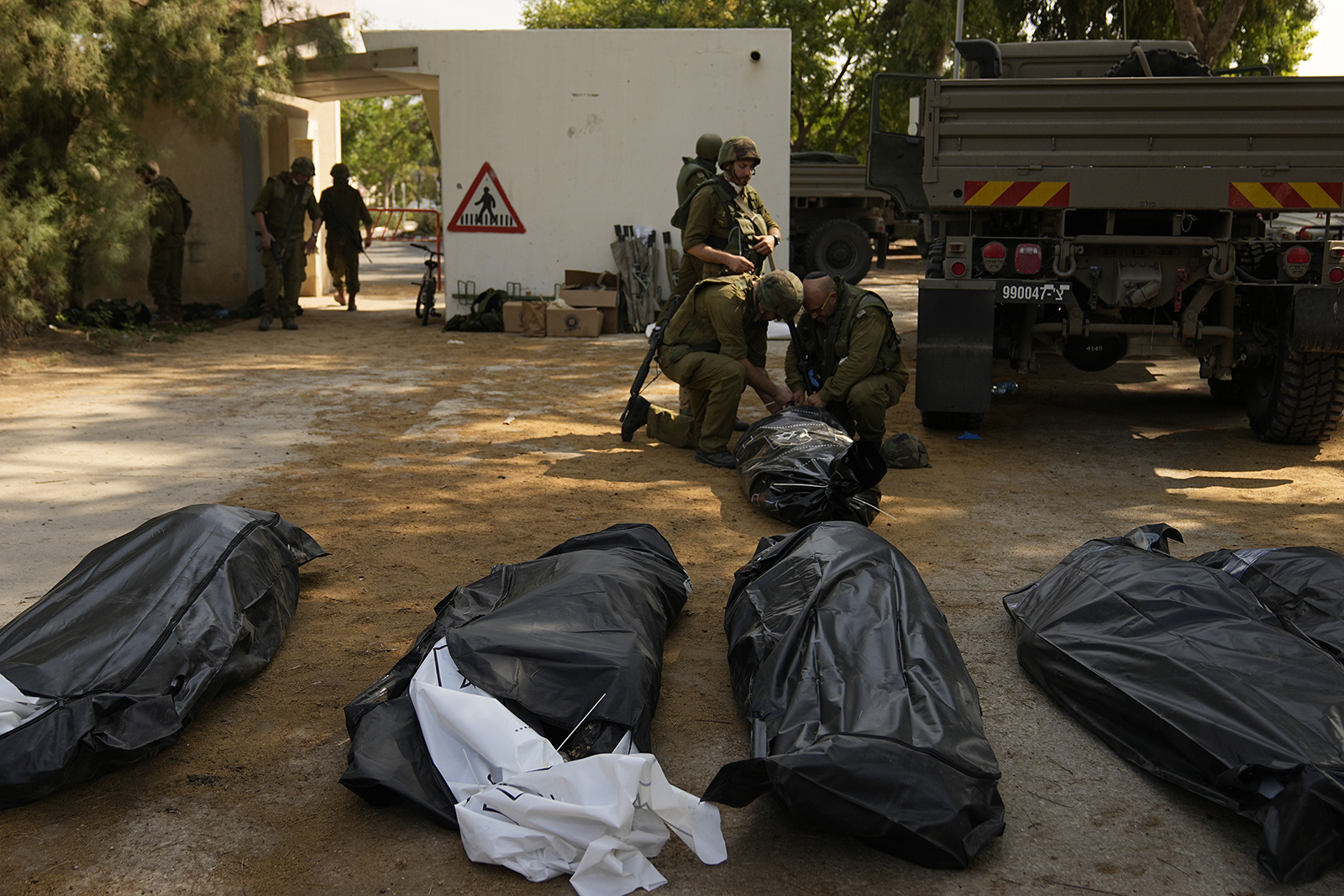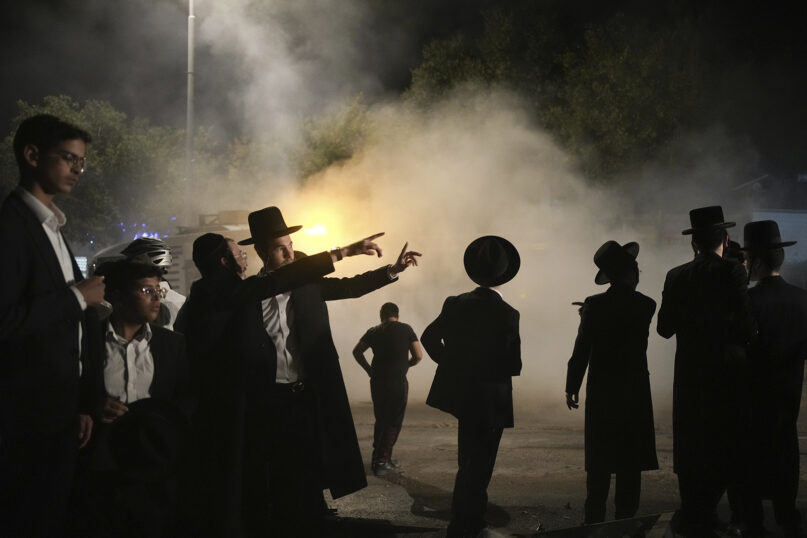(RNS) — As Hamas began its surprise attack on Israel over the weekend, Shemini Atzeret, the final festival of the fall holiday season for Jews, had just begun.
“I left my house … to walk to shul, and saw a police car pull up … and officers — not regular patrolmen — get out of it,” Rivka P. Schwartz, a New York City school principal, posted online days later. “Then I walked the few blocks to my shul and saw another police car parked in front, with more officers outside. And that’s how I knew.”
Most Orthodox Jews, who refrain from using electricity on the holiday, just as they would on the Sabbath, saw signs of an extraordinary event without being able to turn on televisions, radios or cellphones to find out more.
“The reason there would have been police presence all of the sudden outside various identifiably Jewish sites in New York is because that’s what they do when something’s wrong.” Schwartz later told Religion News Service. “What I didn’t know was what it was.”
Because Jewish holidays last a day longer across the diaspora, and including the time difference between the United States and Israel, many American Orthodox Jews, who often have relatives in Israel or other personal ties to the country, didn’t find out the full scope of the assault until it was 44 hours old, and 47 for the West Coast.
Schwartz’s fears were confirmed when a guest at her house for the holiday meal Sunday (Oct. 8) shared the number of dead, then 250. (It would rise to more than 900 by Tuesday.) As word leaked into the Orthodox community in similar ways, the last holidays this year took on a somber tone.

Israeli soldiers stand next to the bodies of Israelis killed by Hamas militants in kibbutz Kfar Azza, Oct. 10, 2023. Hamas militants overran Kfar Azza on Saturday, and many Israelis were killed and taken captive there. (AP Photo/Ohad Zwigenberg)
Those who knew their history recalled that war had broken out in Israel in 1973 on Yom Kippur, the holiest Jewish holiday. Many more recent flare-ups between Palestinian militants and Israel have begun with rocket barrages on other holidays.
Schwartz said that she and many in her congregation thought these most recent hostilities would conclude quickly — perhaps even before the holiday ended in the U.S.
“In retrospect, it’s actually striking how little information we had,” she said. “It’s funny, in a way — it’s a function of the intensity of the internet age and the intensity of dependence on our devices for news.” Twenty-five years ago, Jews would have seen the news in newspapers delivered to their homes or on newsstands as they walked past.
In other communities, announcements about the attack were made in synagogues, but even Saturday night and early in the day Sunday, details were still sparse.
Gail Belfer, who attends a synagogue outside of Philadelphia with her daughter’s family, said the rabbi made an announcement during services and requested that Psalms be read, a Jewish tradition in times of danger or tragedy.
Since Belfer was surrounded by extended family of varying levels of observance, the news was able to filter in throughout Saturday and Sunday that friends and family in Israel were safe.
“Had we not been informed by other people, by family more specifically, what had happened, it would have been very hard not to, you know, pick up the phone and reach out to make sure everybody’s OK,” she said.
Aaron Berk, an Orthodox Jew who was attending holiday services in Stamford, Connecticut, also learned of the attack through his rabbi, but after that scant announcement, he heard only rumors spreading over the next two days.
“I understood that I didn’t want to be getting emotional about rumors,” Berk told RNS. “I knew we would find out when we found out and that this information was going to be second-, third-, fourth- or fifth-hand.”
“I didn’t want to invest myself in believing specifics until I saw more of a consensus from the reporting,” he said.
Jews around the world, even those closer to Israel, were left guessing. In the Netherlands, Shira Kavita’s first clue of the attack came from the doubled presence of Dutch military police outside of her synagogue, Amsterdam’s nearly 350-year-old Portuguese synagogue, on Saturday night.
During the synagogue’s communal meal after services Saturday night, its president announced that war had broken out in Israel but that few details were available.
“Some people were really stressed and crying,” Kavita told RNS, “and also some people that never, never, never break Yom Tov (Jewish holiday observance), they actually got up to go home and check their phones.
“Only after the (holiday) Sunday evening did we actually learn what was going on, and we were just paralyzed with shock,” she said.





